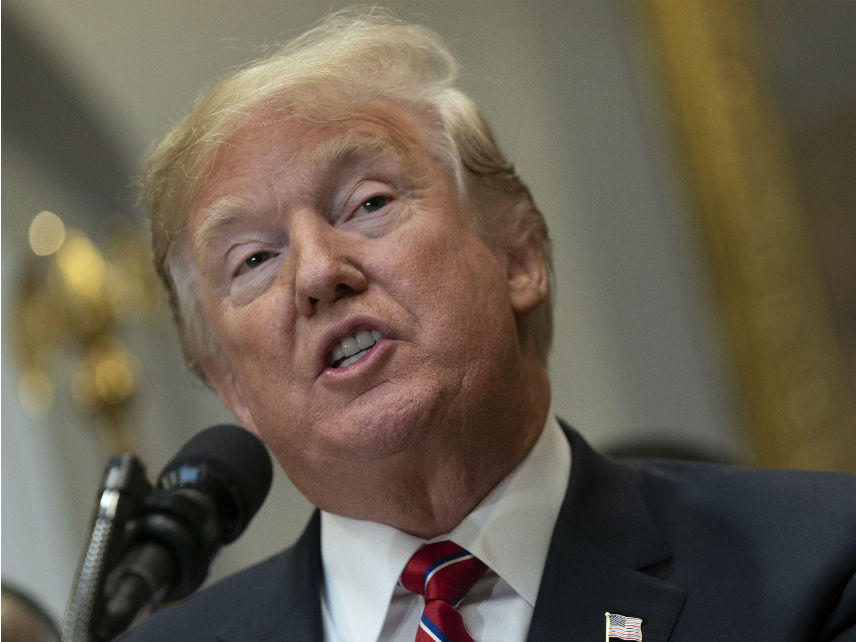No, Replacing NAFTA Doesn't Mean 'MEXICO IS PAYING FOR THE WALL!'
Sorry, Trump.

From the earliest days of his primary campaign, President Trump promised he would build a wall across the southern border and make Mexico pay for it. On Thursday, Trump declared that the United States–Mexico–Canada Agreement (USMCA) would allow him to finally fulfill that promise. The only problem is that this is not true. If the wall gets built, it will still be Americans who foot the bill.
Early talks about the border wall lacked specificity. In January, a payment solution explored by Congressional Republicans had America paying for the wall up front. That wasn't what Trump promised, and so the president tweeted in response that Americans would be reimbursed, perhaps with a 20 percent tax on imports from Mexico. Critics responded that such a tax—and thus the wall itself—would be paid for by American consumers.
On Thursday, Trump announced that the USMCA promises substantial savings over the North American Free Trade Agreement (NAFTA), and that means Mexico really is paying for the border wall.
I often stated, "One way or the other, Mexico is going to pay for the Wall." This has never changed. Our new deal with Mexico (and Canada), the USMCA, is so much better than the old, very costly & anti-USA NAFTA deal, that just by the money we save, MEXICO IS PAYING FOR THE WALL!
— Donald J. Trump (@realDonaldTrump) December 13, 2018
But saving money is not the same as receiving it. Americans will still foot the bill, while possibly watching still more jobs head overseas. Reason's Eric Boehm predicted that certain provisions in the agreement will lead to higher manufacturing costs, which would lead companies to move production outside the U.S.
Unless Trump finds another way to charge Mexico for an American infrastructure project, Americans can fully expect to pay at least $18 billion for the first phase of the wall. They can also expect to pay at least $48.3 billion in repairs throughout the wall's first decade. The actual cost will likely be much higher, as initial estimates rely on "unrealistically cheap construction costs."


Show Comments (67)